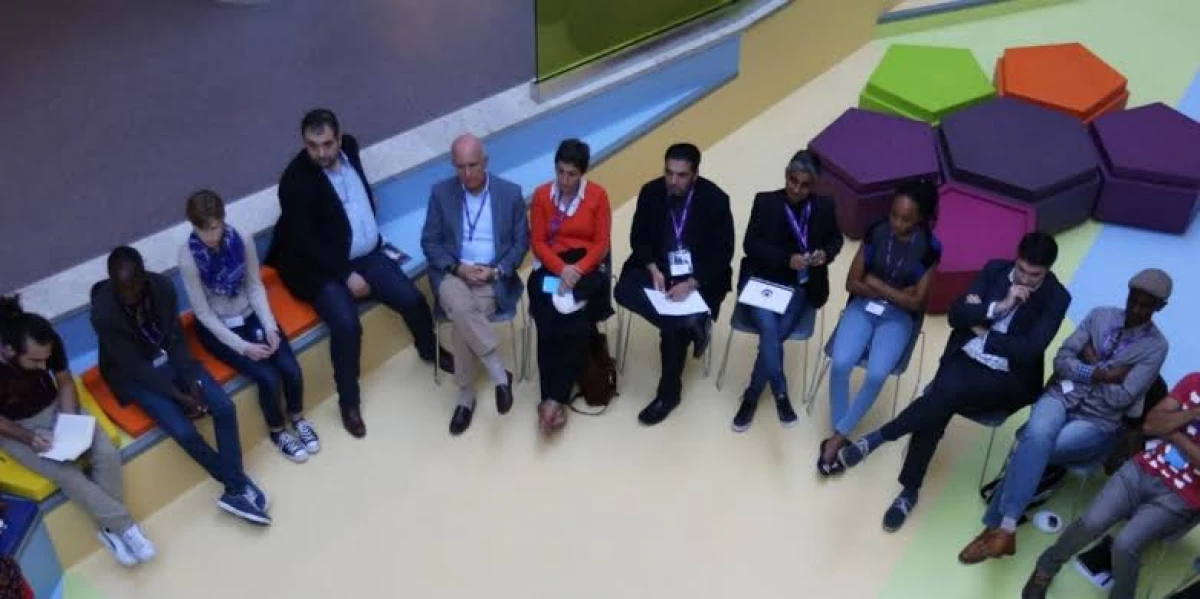OPINION: Diaz - Leadership, looking at talent and vision beyond 2030

Photo / Courtesy

Audio By Vocalize
Leadership is a process of social influence which maximizes
efforts of others towards achievement of a goal – as described by Kevin Kruse,
Founder and Chief Executive Officer LEADx and New York Times best selling
author.
Like management or talent development, leadership is one of those concepts that we have an inherent knack for recognizing but have a tough time defining well. Part of this is because great leaders don’t all lead the same way or have the same experience.
Before the new world of work, many CEOs, leaders, and employees were complacent or too slow to recognize their complacency or blind spots .
However, complacency is not an option for 21st century, CEOs and leaders seeking longevity and sustainable profitability.
If a leader is not prepared to change the way things are done or disrupt your legacy thinking, he or she will risk overseeing an organization that fades into obscurity or falls behind. A mentor or coach watches and makes observations confidentially and openly to the leader.
The future of leadership in the digital economy needs leaders that can adapt to a world defined by increased innovative thinking, focus on digitization and understanding with empathy in development of younger and other team players.
Organizations across industries are increasingly leveraging technologies, such as the Internet of Things (IoT), machine learning, blockchain, artificial intelligence, and the cloud to build a digital enterprise and reinvent existing products and services.
Digitization is progressing at an incredible rate due to its ability to collect, use, and analyze huge amounts of data, information on almost everything.
End brain drain, brilliant leadership talents should come home
On the face of it, brain drain this sounds like a win-win trend, as host countries benefit from the migrants’ skills, who in turn benefit from the more stable economic environment they enter. But some development economists fret that it is bad for the migrants’ home countries. They argue that “brain drain” from LDC countries is robbing those countries of the people they need to escape poverty.
Highly skilled immigrants from poorer parts of the world tend to be welcomed by most rich countries. Over the past several decades, many talented professionals and business leaders made their way to the foreign countries, building companies that drove a range of new technologies and innovations into the market.
While on the surface, it may appear to some that having foreign-born talent leaving the country frees up employment for domestic workers, the opposite may occur. There may be a diminishing of opportunities as a result of a reverse brain drain.
India and China have come a long way from just a couple of decades ago, when they were impoverished and mainly agrarian nations. They have become exciting hotbeds of innovation and growth. It's only natural that the talent that arises in locally countries see more reason to stay or go back, so some of the reverse brain drain is unstoppable.
Young people need to be encouraged and financially supported to attain the highest educational levels possible.
Engaging diaspora in skills transfer and investment is “central” to development. Aid groups have been struggling to find ways to engage diaspora in development causes beyond the mere sending of remittances. There’s huge potential as the diaspora are brand ambassadors and send billions of funds back home.
Across the board, diasporas are eager to get involved in developing their countries of origin – not just by giving money, but also by getting involved in foreign aid planning and implementation.
Dilip Ratha of the book “Diaspora for Development,” says that providing dual citizenship is, maybe, one key element that can help in bringing home the talents. The most important thing governments can do is to provide dual citizenship so that migrants can go in and out of the country without hassle, according to Plata.
There is need to look beyond diaspora associations. They can’t represent everyone but partnerships across the world increases leadership networks.
Some leaders suggest, is to get representation from all over the country and from different segments of the diaspora. It’s appropriate to make arrangements with universities for mutual skills sharing and technological training.
Creativity in partnerships can also be used - there should be a development marketplace where entrepreneurs with good ideas can do joint projects with the diaspora. In general, government should create programs to develop the technologies most needed in the developing world in collaboration with diaspora members with the all skill levels.
Build diaspora capacity is another idea that can work well. These groups are often very eager to work and come with a lot of ideas, but they need advise, funding, solutions and capacity. They need to be put in touch with their counterparts and friends in developing countries, even if it is only for a short engagement.
Doctor missions or volunteer teaching assignments are common ways to engage individuals for short-term projects. Encouraging diaspora participation, even if it’s short-term and imperfect, is necessary will bring much needed leadership innovation and teaming up with new opportunities and business partnerships.
Business leader


Leave a Comment